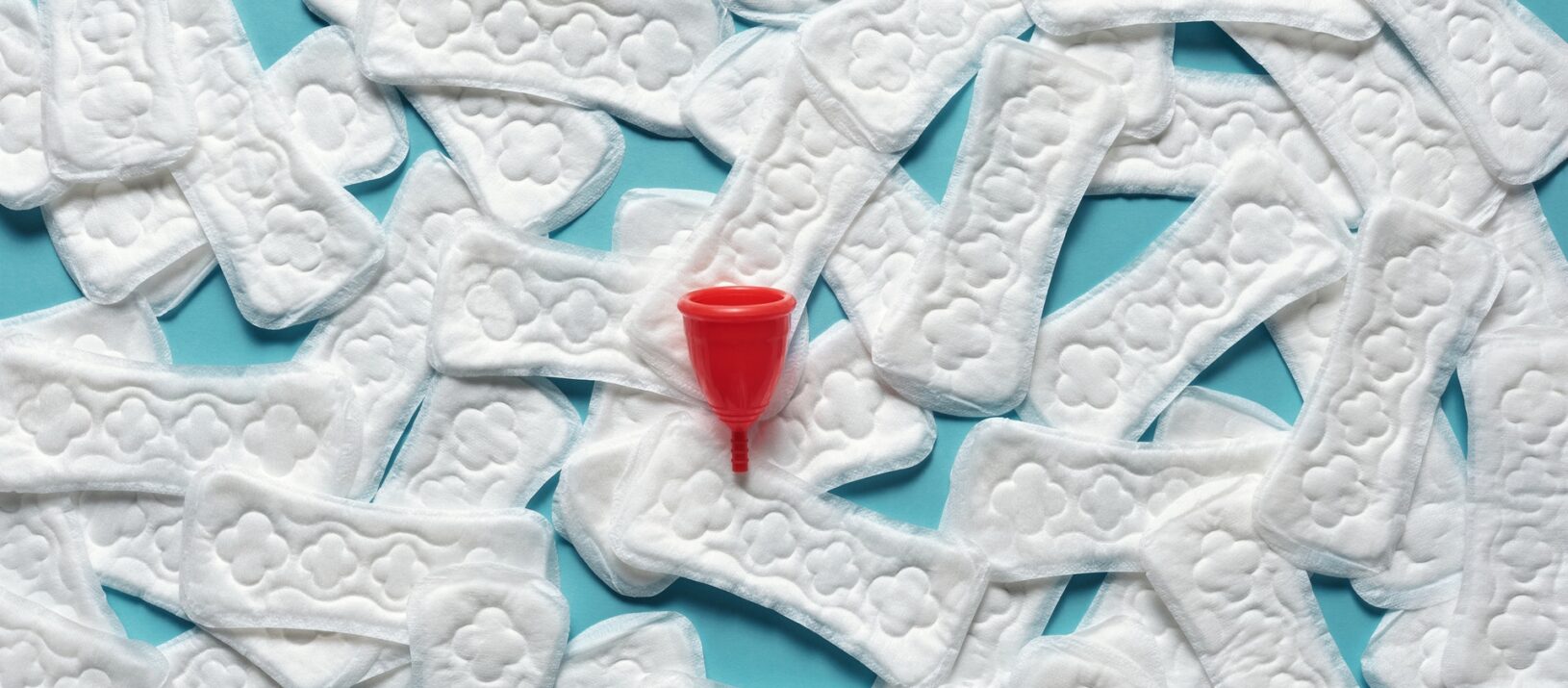

Plastic Free, period.
Moon time, riding the crimson wave, lady business, that time of the month, visit from Aunty flo… PERIODS.
As you can see, we’ve gotten really good as a society at not talking directly about them. So it doesn’t come as a huge surprise that while we spend a lot of time focusing on the harmful effects of single use plastic, just as much time and effort considering effects of pesky chemicals and we are always looking at ways to save money – it’s still one industry that this is all being overlooked.
Given half of the world’s population will experience them as a normal part of life, we say it’s a bloody shame!
The 28th May is Menstrual Hygiene Day – part of their mission is to break the silence, raise awareness and change negative social norms around menstrual hygiene management, something that everyone should be entitled to do their own research on and have the power to make their own conscious choices about. Talking openly on this topic about needs and options is just the beginning.

Here’s some facts for you:
Plastic free period products are not a new concept, (DID YOU KNOW The first menstrual cup was patented back in 1932, and the first silicone-based model was sold in 2002!) but there is still a stigma of taboo attached to the topic, particularly in some parts of the world (Indonesia included).
It’s estimated that over a lifetime, each menstruator will use an average of 11 thousand single-use pads and tampons! Most tampons are packaged in plastic, come with a plastic applicator, have plastic strings attached or have plastic particles throughout the cotton or fabric. The amount of plastic in pads is even higher. (Source)
On top of that, these period products also can’t be recycled because of health concerns – that’s a staggering amount of potential waste piling up.
FUN/ SHOCKING FACT: One pack of sanitary pads contains the same amount of plastic as four carrier bags.
If you are a little more health conscious and really want to be mindful about what you put on and into your body – knowing what’s in these products will be important to you. We were gobsmacked to find that carbon disulfide and toluene (two known reproductive toxicants) can be found in most well-known tampon brands, as well other synthetic materials like rayon, adhesives, artificial fragrances and toxic chemicals such as phthalates, bisphenol – A and petrochemical additives, which are recognized environmental pollutants and are also known to be endocrine-disrupting substances linked to some diseases, such as heart diseases, infertility and cancer. (Source).
We also found it disturbing that manufacturers are not obliged to disclose this information on feminine hygiene products (in countries such as America, Indonesia and Australia to name a few!)
If saving cash, the environment and benefiting your health weren’t reason enough to switch to plastic free period products, at the very least we’d love to get you thinking about your options – So! What are they?
Menstrual cups
A flexible cup made from silicone and designed to be used inside the vagina to collect your period for up to 12 hours – yes that’s right, you could go through a whole work day, event or outing without having to change, replace or dispose of a sanitary item!
We love the Lunar Cup – made from medical grade Silicone. The cup comes in two sizes – S for light flow or L for a heavier flow. The size L is also suitable for you if you have just had a baby, surgery or have a weak pelvic floor.
Reusable pads
Designed to absorb your flow exactly the same way as disposable pads. They come in a pack of multiple sizes so you can choose what you need based on your flow. Snap buttons clip around your underwear to hold them in place! After use simply machine wash and you’re good to go!
The beautifully designed packs from Lestary Batikku are made by beautiful Balinese artisans from cotton and towel. Containing five sizes to give you options based on your preference, body and flow.
Period Undies
As the name suggests – washable period underwear is another option, ditching pads and tampons altogether!
The wrap up!
On the Alive team we are all massive converts to going plastic free for periods. Knowing we are helping the environment and looking after our bodies (the money saved doesn’t hurt either!).
It’s also extremely liberating not having to search for products often not in-stock here in Bali, rely on friends to bring packs of pads and tampons with them for us when they visit Bali (virtually impossible now with travel restrictions) or be forced to pay the hefty prices and import tax on products bought online from overseas.
Something to consider if you’re not ready to make the switch to plastic free period products…
If you live here in Bali like we do, you’ll be familiar with the signs next to every bathroom that read “don’t flush sanitary products, tissues or your boyfriend down the toilet”. The reasons for this go way beyond the obvious; potential “blockages and flooding”. The sewerage water eventually ends up in our beautiful oceans. We talked about chemicals earlier, but -DID YOU KNOW one conventional sanitary pad takes between 500 and 800 years to break down? Even if you aren’t a surfer or a turtle, it’s safe to say that no one wants to swim past a used tampon, or step on pads as we stroll along the beach, period.
Moral of the story? Bin them or learn how to compost your period products instead – a topic for another day!
2010 Views
0 comment
